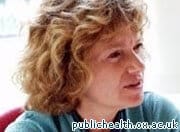The UK is rushing to create three-parent babies, despite concerns about safety and potential risks to the women involved, two prominent bioethicists have warned.
Donna Dickenson, emeritus professor of medical ethics at the University of London, and Marcy Darnovsky, executive director of the US Center for Genetics and Society, pointed to America where there are “no plans” to allow the techniques.
In an article for the New Scientist magazine, the bioethicists highlighted concerns raised by an advisory panel to the US Food and Drug Administration that there is no evidence to support the use of GM baby techniques in humans.
Effective
The group said that there is “probably not enough data” to move on to human trials, and that it is unclear whether the procedures would be effective.
One technique, known as Maternal Spindle Transfer (MST), aims to create children free from mitochondrial disease by replacing the nucleus in a healthy donor egg with the nucleus DNA from the prospective mother.
The UK Department of Health recently closed its consultation on draft regulations for MST and another similar technique.
Westminster
If Westminster approves the procedures, the UK will become the only country in the world to legalise the creation of three or four-parent embryos.
The bioethicists noted that MPs from different parties are sceptical about the proposals.
“Key worries include remnants of mutant mitochondrial DNA that persist despite the treatment, and the disruption of complex interactions between mitochondrial genes and those in the cell nucleus.”
Ethical
Dickenson and Darnovsky also point to US National Institutes of Health guidelines which said the procedure has “health and ethical implications”.
The article concluded: “If the evidence for safety is lacking, and if the handful of women intended as the beneficiaries could be put at risk by trialling the techniques, that only leaves one clear motive for hurriedly changing the law: positioning the UK at the frontier of scientific research on mitochondrial disease.
“But”, the pair added, “the frontier can be a lonely and dangerous place”.

